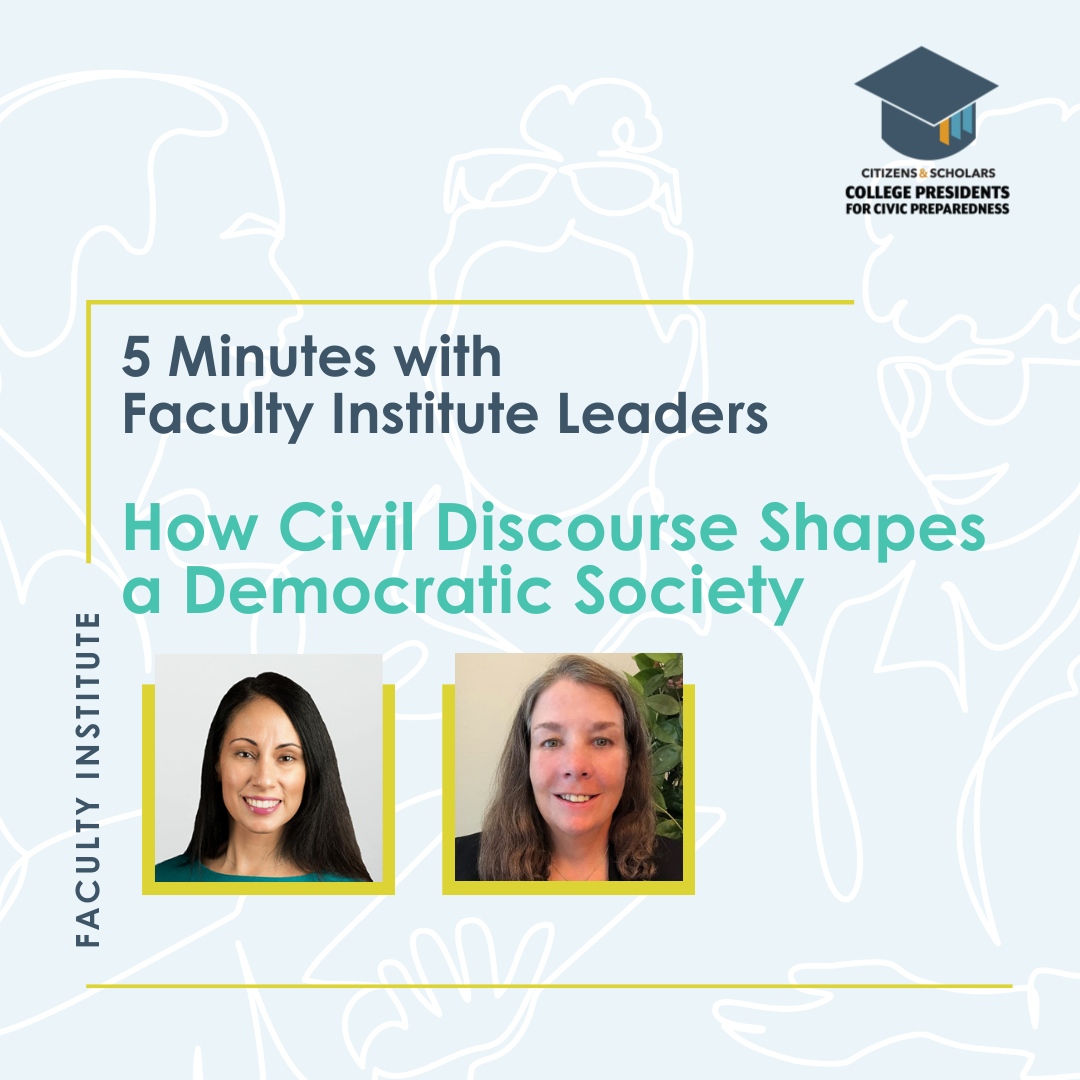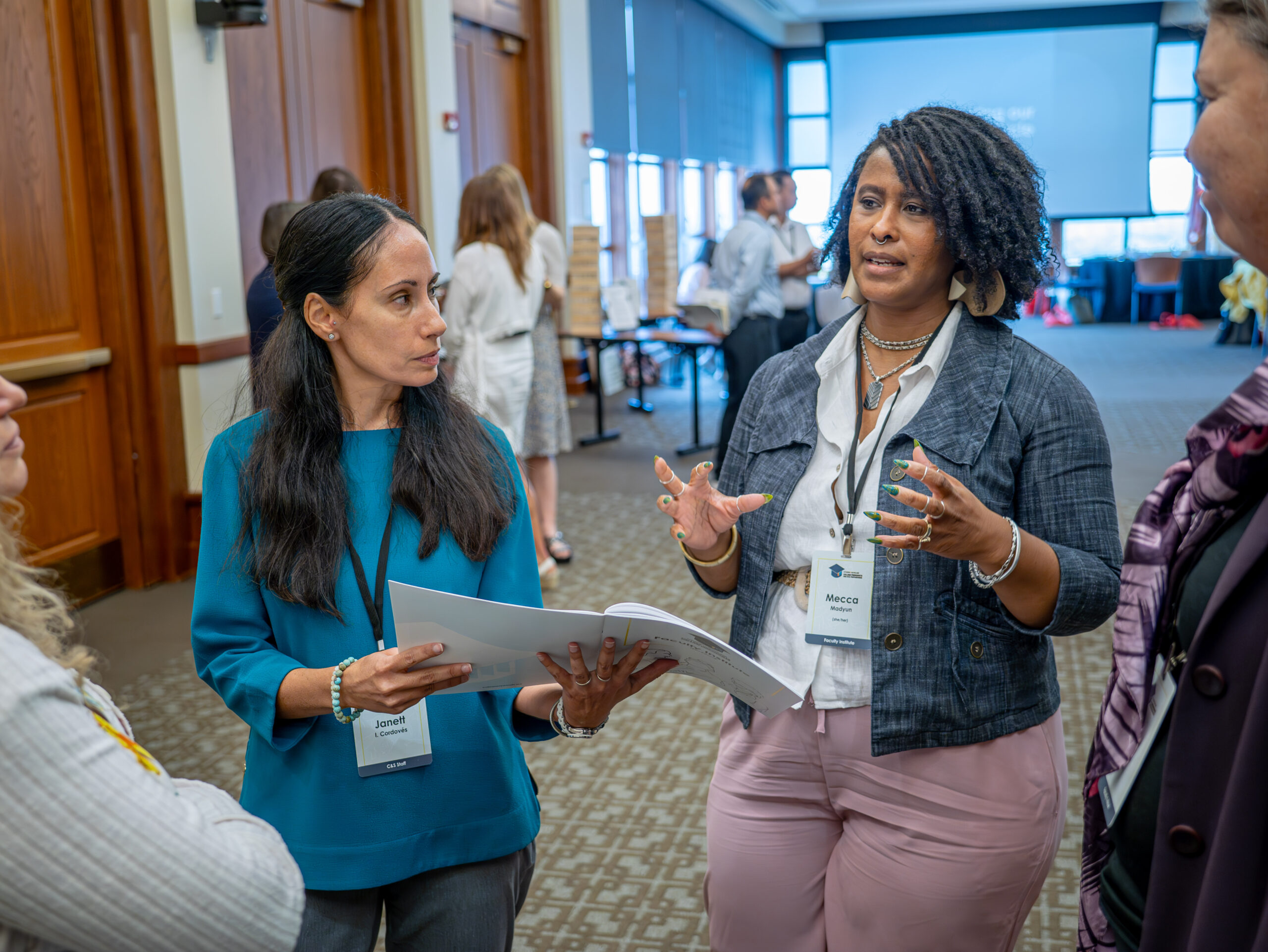5 Minutes with Faculty Institute Leaders: How Civil Discourse Shapes a Democratic Society
January 14, 2025
Share

The College Presidents for Civic Preparedness Faculty Institute helps interdisciplinary educators across the country gain the skills and confidence to redesign or create new courses that promote dialogue across difference and become champions of this work on their campuses. What does this work mean for our democracy, the future of higher education, and preparing a rising generation of empowered citizens?
In this interview series, Citizens & Scholars explores these questions and more with Janett Cordovés, Senior Program Director of the Presidents Consortium, alongside two Faculty Fellows. Leila Brammer is the Director of Outreach and Curriculum Development at the University of Chicago.
Citizens & Scholars: What would a democratic society look like if students gained the skills and knowledge needed to engage in civil discourse?
Janett Cordovés: I think innovation, right? We know the diversity of perspectives, cultures, genders, and religious backgrounds allows us to be generative, innovative, and problem-solving. The issue is that we have this diversity, but we haven’t captured the skillset to engage it. And so companies are losing out, campuses are losing out, our communities are losing out. Take a societal issue like homelessness. If you’re working at a nonprofit, and you cannot engage with your government officials because of ideological differences, you aren’t in the strongest position to meet your organizational needs and mission. So you lose out on the possibilities of finding a solution. And I think that’s why our societal problems are growing and deepening. We haven’t figured out how to pull, maximize, and positively engage our diversity.
Leila Brammer: We have the most highly connected world we’ve ever had, and the least connected citizenry that we have ever had. By preparing students to move into their local communities where they can facilitate conversations, look people in the eye, and make relationships…that’s a community of connection. And then based on that, you become a community of creativity. Connection and creativity are necessary for civic life and to also address our epidemic of loneliness.

Related: 5 Minutes with Faculty Institute Leaders: The Future of College Campuses
Stay Engaged
Get More News
Join our mailing list to get more news like this to your mailbox.
Support Our Work
Help us invest in the talent, ideas, and networks that will develop young people as effective, lifelong citizens.
Ways to Support Us